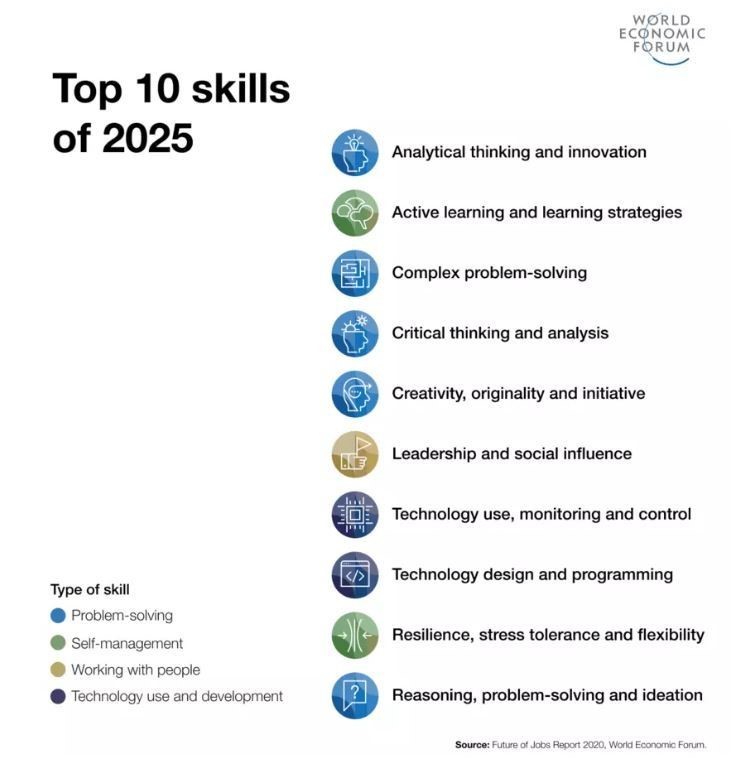Section outline
-
-
i. Knowing who you are
American Theologian, Frederick Buechner said this: ‘Vocation is the place where your deep gladness, meets the world's great need'. If this is true, it is vital, alongside recognising the world’s great need, to know what your deep gladness is. And, if our service is an expression of our worship, it’s also crucial to find an environment that enables you to worship well.
-
ii. Understanding your personality
Our God-given personality affects how we interact with the world: how we approach tasks and relationships, how we make decisions and manage stress, how we communicate and collaborate with others.
A few fun activities:
-
Are you an introvert/extravert/ambivert: Try this online quiz
-
Are you a perfectionist? Try this online quiz. If so, how does it affect how you work/interact with others? Here's a helpful article: TimesHigherEdJuly25
-
Are you a leader/follower; planner/spontaneous; intuitive/observing; think with your head/heart?
Do the work to understand how you tick – it will pay dividends.
-
-
iii. How do you fit in a team?
What kind of workplace helps you thrive? Think about any job/volunteering you’ve done: what did you love or hate about it? Apply this to any future role you consider.
What do you, as extravert/introvert, as visionary/detailed planner, as fast/slow thinker bring to a team?
Creating high-performing teams isn’t just about the right skills and technical abilities: it’s about healthy team dynamics, requiring each member to bring self-awareness and appreciation of others, as having equal value.
-
iv. Understanding what you bring to the employability table
Employment experts these days warn us that work experience is “no longer an optional extra” for universities, and state that they have increasingly become an essential element of preparing for the employment market. The Daily Telegraph quotes the statistic that undergraduate students who go on practical experience are three times as likely to get employment on graduation.
What qualities are employers looking for?


As an LST graduate, you bring a wealth of skills to any employer! You may want to do an Audit of Skills and Achievements, which is time-consuming but a valuable resource for CV-building.
-
How your Theology-based degree equips you for the workplace
Many academic modules across the curriculum have a clear practical application and some programmes include vocationally-specific training, all of which are formative. It's key that you recognise what specific transferable skills you have accrued along your LST journey and how your Theology-based undergraduate/postgraduate degree equips you for any workplace team.
Think firstly about what graduate qualities are sought by today’s employers? The World Economic Forum suggests these are the current and future priorities (42sec video) or as a chart:

Now work backwards: a helpful exercise is to take any of the above list and reflect on how your Theology-based degree equips you with the transferable skills for the quality sought? More than you might imagine! Take a look at our sample Theology grad qualities for examples (you could use some of these in building your CV) – these are just the beginning: you’ll no doubt think of many more.
You might like to take National Career Service’s Discover your skills quiz. Or discover your essential skills here with the Skills Builder Benchmark.
Watch an Employability Workshop (1hr15mins), run with Christian NGO Christians for Impact in 2025.
-
-
v. Vision-casting
If you’re a future-orientated person, you might be tempted always to be thinking of the next thing. If you’re rooted in the present, you might be in danger of avoiding thinking of a potential, different future. Why not try a 5-year vision casting exercise? Think about where you’d like to be, vocationally, in 5 years’ time. Then identify the vocational experience, personal qualities and bridging of skills-gaps that you need to work on NOW, in order to get there THEN.
You might want to try Odyssey Planning, using their Planning Templates.
-
